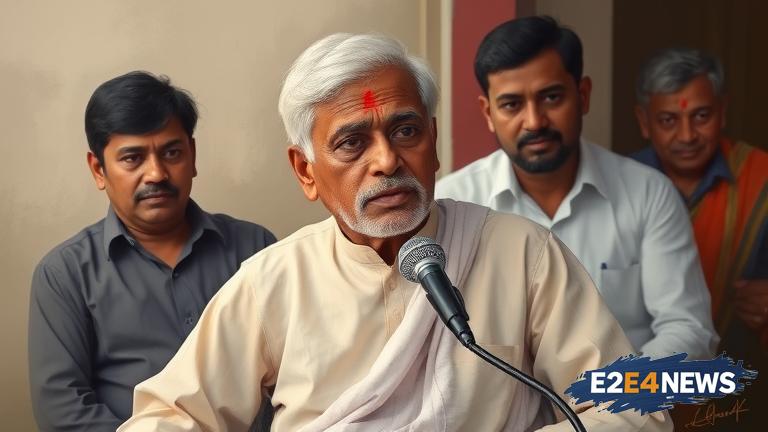The Chief Minister of Tripura has reaffirmed the state’s stance on identifying illegal migrants, stating that the 14-year cutoff will be strictly adhered to. This decision has been met with a mix of reactions, with some hailing it as a necessary measure to address the issue of illegal immigration, while others have raised concerns about its potential impact on the state’s demographic and social fabric. The 14-year cutoff refers to the period of time an individual has been residing in the state, with those having lived there for less than 14 years being considered potential illegal migrants. The Chief Minister’s statement has sparked a heated debate, with opposition parties and social organizations weighing in on the issue. Some have argued that the cutoff is arbitrary and does not take into account the complexities of migration and the realities of life in the state. Others have expressed concerns about the potential for harassment and intimidation of minority communities. The issue of illegal migration has been a longstanding one in Tripura, with the state sharing a long international border with Bangladesh. The influx of migrants has put a strain on the state’s resources and infrastructure, leading to tensions between different communities. The Chief Minister’s decision is seen as an attempt to address these concerns and restore balance to the state’s demographic. However, the move has also been criticized for being overly simplistic and failing to account for the nuances of the issue. The opposition has demanded a more comprehensive approach to addressing the problem of illegal migration, one that takes into account the social, economic, and cultural factors at play. The Chief Minister’s stance has also been seen as a reflection of the state’s broader political landscape, with the ruling party seeking to consolidate its support base ahead of upcoming elections. The issue is likely to continue to be a major point of contention in the state, with different stakeholders holding firmly to their positions. As the debate rages on, the people of Tripura wait with bated breath to see how the situation will unfold. The state government has assured that the process of identifying illegal migrants will be fair and transparent, but the opposition remains skeptical. The cutoff period of 14 years has been chosen based on the assumption that anyone who has been living in the state for more than 14 years is likely to be a genuine citizen. However, this assumption has been challenged by many, who argue that it does not take into account the many complexities of migration and the difficulties faced by many in obtaining proper documentation. The issue of illegal migration is a complex one, and it remains to be seen how the state government’s decision will play out in the coming days and weeks.
